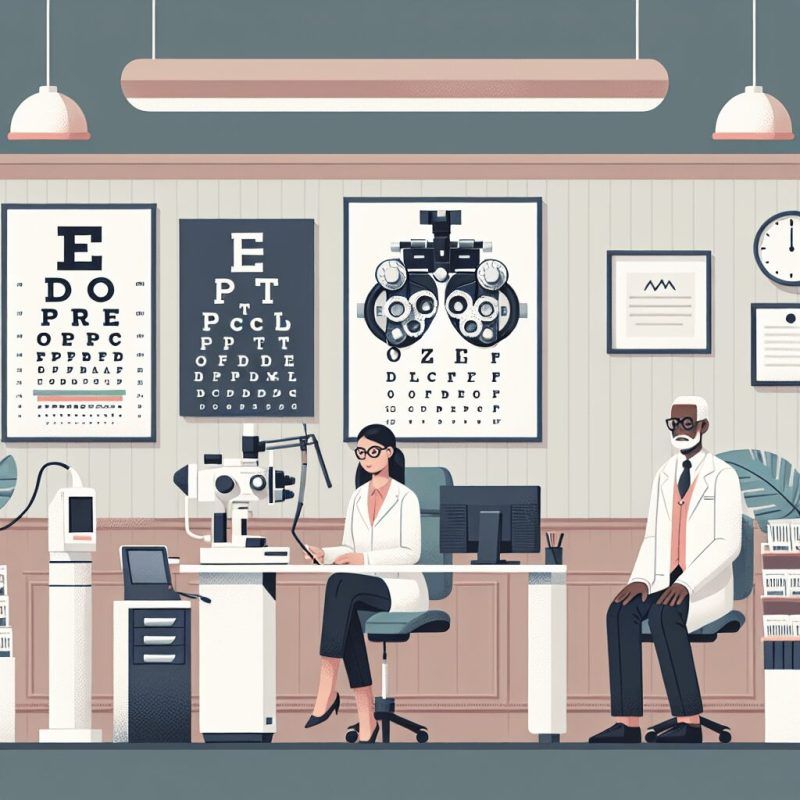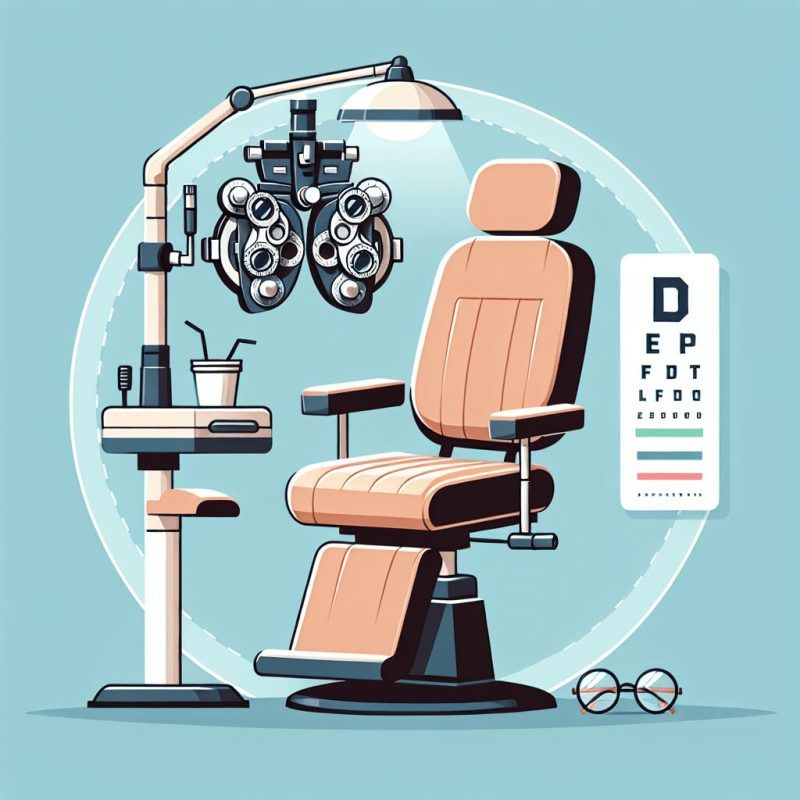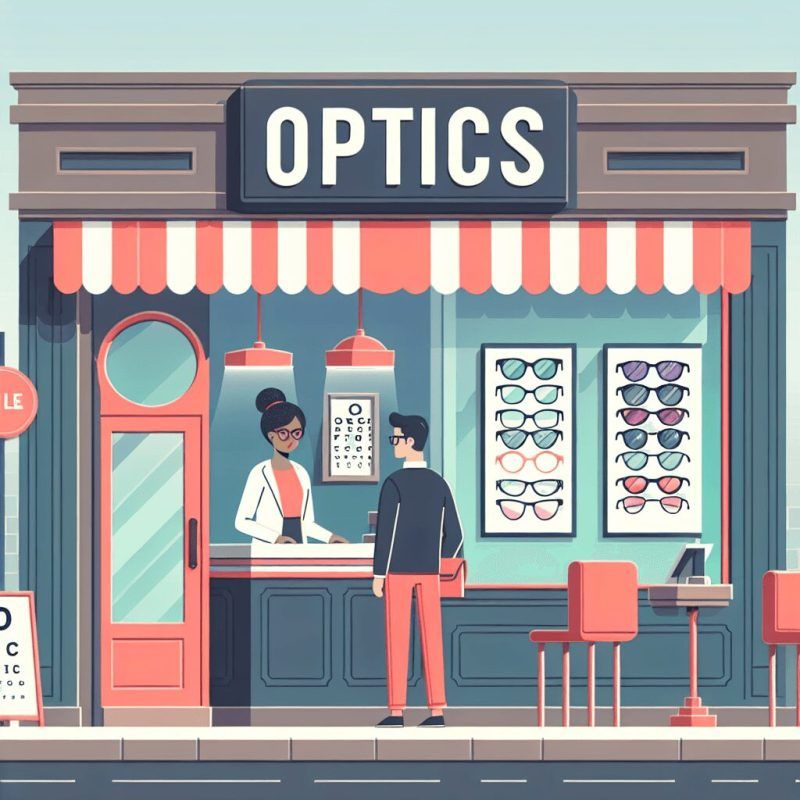Doctor's Corner
Glass vs. Plastic Lenses: Cost and Quality Comparison
When choosing between glass and plastic lenses for your eyeglasses, cost and quality are important factors.
Glass and plastic prescription eyewear each have advantages and drawbacks affecting price and performance.
Understanding these differences can help you make an informed decision based on your needs and budget.
Let’s compare the cost and quality elements of glass versus plastic lenses to help you choose the right pair of glasses.
Glass vs. Plastic Lenses
Recommended Products
When recommending lenses to customers, we consider their needs and lifestyle. Glass lenses are good for severe vision correction and multifocal needs due to their refractive index. Plastic lenses, on the other hand, are lightweight and impact-resistant, making them ideal for active individuals like children and athletes. Glass lenses offer scratch resistance and style options, while plastic lenses need less maintenance but may be less durable.
For children and athletes, the durability and safety of plastic lenses make them a practical choice. Plastic lenses, such as polycarbonate, have been used in eyewear for years for their quality and protection. Nowadays, plastic lenses are favored for being lightweight and impact-resistant.
Affordable Designs
Categories
When choosing eyeglass lenses, people can choose between glass and plastic options.
Glass lenses have high refractive index and dispersion properties, making them a traditional choice for eyes. They are durable and scratch-resistant, but they are heavier than plastic lenses.
Plastic lenses, such as polycarbonate or organic glass, are lighter and more flexible, making them suitable for active individuals like children and athletes. They also tend to be more affordable than glass lenses, making them accessible to a broader audience.
When deciding on lenses for personal eyewear, it’s important to consider lifestyle, style, and vision needs. The choice between glass and plastic lenses depends on individual priorities and the intended use of the eyeglasses.
Eyewear technology has evolved in the 21st century, offering various styles, frame colors, and materials to cater to different preferences and requirements.
Which material is best for which person?
When choosing between glass and plastic lenses for eyeglasses, consider several factors.
Glass lenses are more scratch-resistant and durable than plastic lenses, making them suitable for those needing robust eyewear.
On the other hand, plastic lenses are lightweight, making them ideal for active individuals like children and athletes.
The refractive index range and dispersion of both materials affect vision quality.
Age and lifestyle also play a role in decision-making. Older individuals may prefer the weight of glass lenses, while younger people may like the flexibility of plastic ones.
Additionally, factors like frame style, face shape, and color choices can enhance the overall look of the eyewear.
Technological advancements like organic glass and polycarbonate offer both advantages and major cons in eyewear options.
In the end, eyeglasses are meant to aid vision and provide protection, with features tailored to individual preferences.
Glass Spectacle Lenses
Glass spectacle lenses and plastic lenses have key differences in durability and clarity.
Glass lenses are highly durable, less prone to scratches than plastic lenses, and can last longer without showing wear. This makes them a reliable choice for long-lasting eyewear.
Glass lenses are superior in terms of clarity due to their higher refractive index range and dispersion properties, which enhance the wearer’s vision quality.
When choosing between glass and plastic lenses, it’s important to consider factors like prescription requirements, lifestyle, and preferences.
Glass lenses are ideal for severe ametropia correction or multifocal lenses, providing precise vision correction.
On the other hand, plastic lenses may be better for active individuals or those seeking lightweight options because of their lighter weight and impact-resistant properties.
FAQ
What are the cost differences between glass and plastic lenses?
Glass lenses are typically more expensive than plastic lenses due to their superior quality and scratch resistance.
Is there a significant difference in quality between glass and plastic lenses?
Glass lenses typically offer higher optical quality and are more scratch-resistant than plastic lenses. However, plastic lenses are lighter and more impact-resistant. The choice between the two depends on personal preference and specific needs.
Are there any advantages to choosing glass lenses over plastic lenses in terms of quality?
Yes, glass lenses are more scratch-resistant and provide clearer vision compared to plastic lenses. Glass lenses also have better optical clarity and are less susceptible to distortion over time.
How do glass and plastic lenses compare in terms of durability and longevity?
Glass lenses are more durable and scratch-resistant compared to plastic lenses. Glass lenses can last for years without showing signs of wear, while plastic lenses may require replacement sooner due to scratches and damage.
Looking for the perfect eye prescription lenses that cater to your specific needs? Superior Eye Care in The Woodlands, Texas, and Quality Eye Care in Willowbrook, Texas, offer you a wide range of options to choose from. Get your hands on the most suitable and personalized eye lenses today!
The post Glass vs. Plastic Lenses: Cost and Quality Comparison first appeared on Optometrist in Woodlands & Willowbrook TX.
Doctor's Corner





